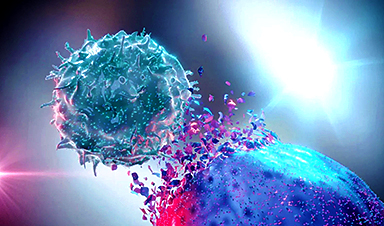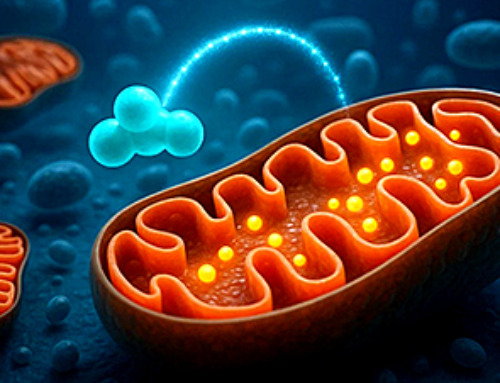The bidirectional research examines both laboratory findings and human clinical trial data, revealing that the medicinal use of white button mushrooms reduces the type of cells that suppress the immune system and facilitate the spread of prostate cancer.
Researchers at City of Hope, one of the largest and most advanced cancer research and treatment organizations in the United States—ranked among the nation’s top five cancer centers by U.S. News & World Report and a national leader in providing cancer patients with best-in-class, integrated supportive care programs—have now uncovered why taking an investigational white button mushroom supplement shows promise in slowing and even preventing the spread of prostate cancer. This discovery comes from a phase 2 clinical trial exploring the concept of “food as medicine.”
Looking at preclinical and preliminary human data, the City of Hope scientists found that taking white button mushroom pills reduces a class of immune cells called myeloid-derived suppressor cells (MDSCs), which has been linked to cancer development and spread.
Exploring the Potential of Plant-Derived Therapies
“City of Hope researchers are investigating foods like white button mushroom, grape seed extract, pomegranate, blueberries, and ripe purple berries called Jamun for their potential medicinal properties. We’re finding that plant-derived substances may one day be used to support traditional cancer treatment and prevention practices,” said Shiuan Chen, Ph.D., the Lester M. and Irene C. Finkelstein Chair in Biology, professor and chair of the Department of Cancer Biology and Molecular Medicine at Beckman Research Institute of City of Hope, and senior author of the new Clinical and Translational Medicine study.
“This study suggests that ‘food as medicine’ treatments could eventually become normal, evidence-based cancer care that is recommended for everyone touched by cancer.”

The use of naturally derived therapies for cancer treatment — called integrative oncology — is growing in popularity as people become more health-conscious and aware of the benefits of whole-person cancer care. Supported by a $100 million gift from Panda Express Co-CEOs Andrew and Peggy Cherng, City of Hope’s Cherng Family Center for Integrative Oncology is accelerating the research, education, and clinical care needed to ensure cancer patients and their doctors have access to safe, proven approaches.
Translating Lab Discoveries Into Clinical Care
At City of Hope, lab researchers work closely with physicians, allowing for streamlined bidirectional research so that laboratory findings can be taken to patients and what is observed in patients can be taken and put back under the microscope for the development of expedited, more effective cancer treatments.
In mouse models, researchers found that administration of white button mushroom extract significantly delayed the growth of tumors and extended the survival of mice. It also improved T cell immune response through the reduction of MDSC levels in animal models, meaning it improved the immune system’s ability to kill cancer.
The researchers profiled blood draws from some of the men participating in City of Hope’s phase 2 clinical trial. The men were under active surveillance as they took white button mushroom supplements. Focusing on eight participants’ samples before and after three months of white button mushroom treatment, the scientists found that there were less tumor-creating MDSCs and more anti-tumor T and natural killer cells, suggesting white button mushroom rebuilds anti-cancer immune defense and slows cancer growth.
“Our study emphasizes the importance of seeking professional guidance to ensure safety and to avoid self-prescribing supplements without consulting a health care provider,” said Xiaoqiang Wang, M.D., Ph.D., City of Hope staff scientist and first author of the study. “Some people are buying mushroom products or extract online, but these are not FDA-approved. While our research has promising early results, the study is ongoing. That said, it couldn’t hurt if people wanted to add more fresh white button mushrooms to their everyday diet.”
People interested in joining the National Cancer Institute-funded phase 2 clinical trial should visit https://www.cityofhope.org/research/clinical-trials. City of Hope researchers are now focusing on whether the reduction in MDSCs is associated with improved clinical outcomes in patients with prostate cancer.
Reference: “Reduction of myeloid-derived suppressor cells in prostate cancer murine models and patients following white button mushroom treatment” by Xiaoqiang Wang, Shoubao Ma, Przemyslaw Twardowski, Clayton Lau, Yin S. Chan, Kelly Wong, Sai Xiao, Jinhui Wang, Xiwei Wu, Paul Frankel, Timothy G. Wilson, Timothy W Synold, Cary Presant, Tanya Dorff, Jianhua Yu, David Sadava and Shiuan Chen, 10 October 2024, Clinical and Translational Medicine.
DOI: 10.1002/ctm2.70048
The study was supported by a National Institutes of Health grant for City of Hope Core Facilities (P30CA033572), a National Cancer Institute grant to Dr. Chen (CA227230) and a pilot study grant from the Panda Charitable Foundation.
News
Differentiating cancerous and healthy cells through motion analysis
Researchers from Tokyo Metropolitan University have found that the motion of unlabeled cells can be used to tell whether they are cancerous or healthy. They observed malignant fibrosarcoma cells and [...]
This Tiny Cellular Gate Could Be the Key to Curing Cancer – And Regrowing Hair
After more than five decades of mystery, scientists have finally unveiled the detailed structure and function of a long-theorized molecular machine in our mitochondria — the mitochondrial pyruvate carrier. This microscopic gatekeeper controls how [...]
Unlocking Vision’s Secrets: Researchers Reveal 3D Structure of Key Eye Protein
Researchers have uncovered the 3D structure of RBP3, a key protein in vision, revealing how it transports retinoids and fatty acids and how its dysfunction may lead to retinal diseases. Proteins play a critical [...]
5 Key Facts About Nanoplastics and How They Affect the Human Body
Nanoplastics are typically defined as plastic particles smaller than 1000 nanometers. These particles are increasingly being detected in human tissues: they can bypass biological barriers, accumulate in organs, and may influence health in ways [...]
Measles Is Back: Doctors Warn of Dangerous Surge Across the U.S.
Parents are encouraged to contact their pediatrician if their child has been exposed to measles or is showing symptoms. Pediatric infectious disease experts are emphasizing the critical importance of measles vaccination, as the highly [...]
AI at the Speed of Light: How Silicon Photonics Are Reinventing Hardware
A cutting-edge AI acceleration platform powered by light rather than electricity could revolutionize how AI is trained and deployed. Using photonic integrated circuits made from advanced III-V semiconductors, researchers have developed a system that vastly [...]
A Grain of Brain, 523 Million Synapses, Most Complicated Neuroscience Experiment Ever Attempted
A team of over 150 scientists has achieved what once seemed impossible: a complete wiring and activity map of a tiny section of a mammalian brain. This feat, part of the MICrONS Project, rivals [...]
The Secret “Radar” Bacteria Use To Outsmart Their Enemies
A chemical radar allows bacteria to sense and eliminate predators. Investigating how microorganisms communicate deepens our understanding of the complex ecological interactions that shape our environment is an area of key focus for the [...]
Psychologists explore ethical issues associated with human-AI relationships
It's becoming increasingly commonplace for people to develop intimate, long-term relationships with artificial intelligence (AI) technologies. At their extreme, people have "married" their AI companions in non-legally binding ceremonies, and at least two people [...]
When You Lose Weight, Where Does It Actually Go?
Most health professionals lack a clear understanding of how body fat is lost, often subscribing to misconceptions like fat converting to energy or muscle. The truth is, fat is actually broken down into carbon [...]
How Everyday Plastics Quietly Turn Into DNA-Damaging Nanoparticles
The same unique structure that makes plastic so versatile also makes it susceptible to breaking down into harmful micro- and nanoscale particles. The world is saturated with trillions of microscopic and nanoscopic plastic particles, some smaller [...]
AI Outperforms Physicians in Real-World Urgent Care Decisions, Study Finds
The study, conducted at the virtual urgent care clinic Cedars-Sinai Connect in LA, compared recommendations given in about 500 visits of adult patients with relatively common symptoms – respiratory, urinary, eye, vaginal and dental. [...]
Challenging the Big Bang: A Multi-Singularity Origin for the Universe
In a study published in the journal Classical and Quantum Gravity, Dr. Richard Lieu, a physics professor at The University of Alabama in Huntsville (UAH), which is a part of The University of Alabama System, suggests that [...]
New drug restores vision by regenerating retinal nerves
Vision is one of the most crucial human senses, yet over 300 million people worldwide are at risk of vision loss due to various retinal diseases. While recent advancements in retinal disease treatments have [...]
Shingles vaccine cuts dementia risk by 20%, new study shows
A shingles shot may do more than prevent rash — it could help shield the aging brain from dementia, according to a landmark study using real-world data from the UK. A routine vaccine could [...]
AI Predicts Sudden Cardiac Arrest Days Before It Strikes
AI can now predict deadly heart arrhythmias up to two weeks in advance, potentially transforming cardiac care. Artificial intelligence could play a key role in preventing many cases of sudden cardiac death, according to [...]





















